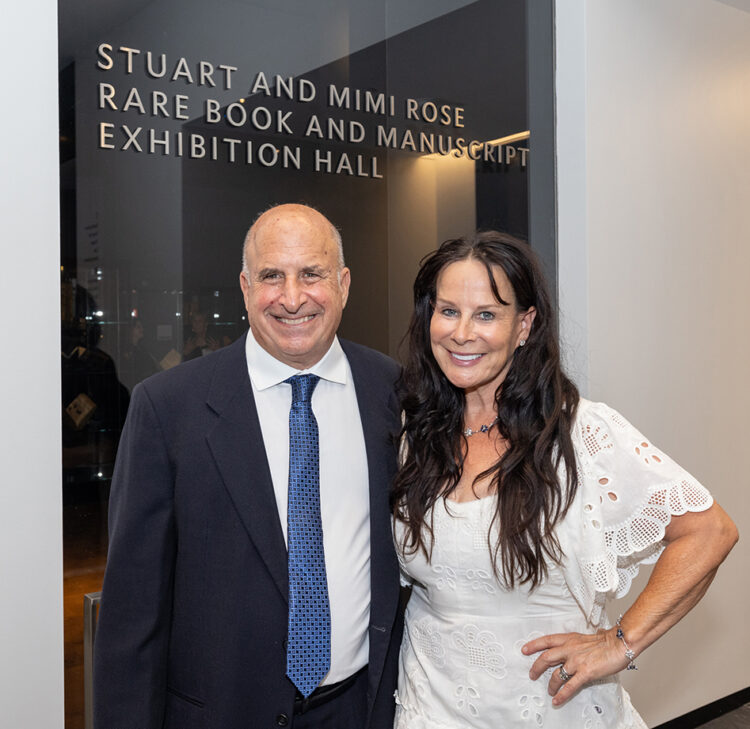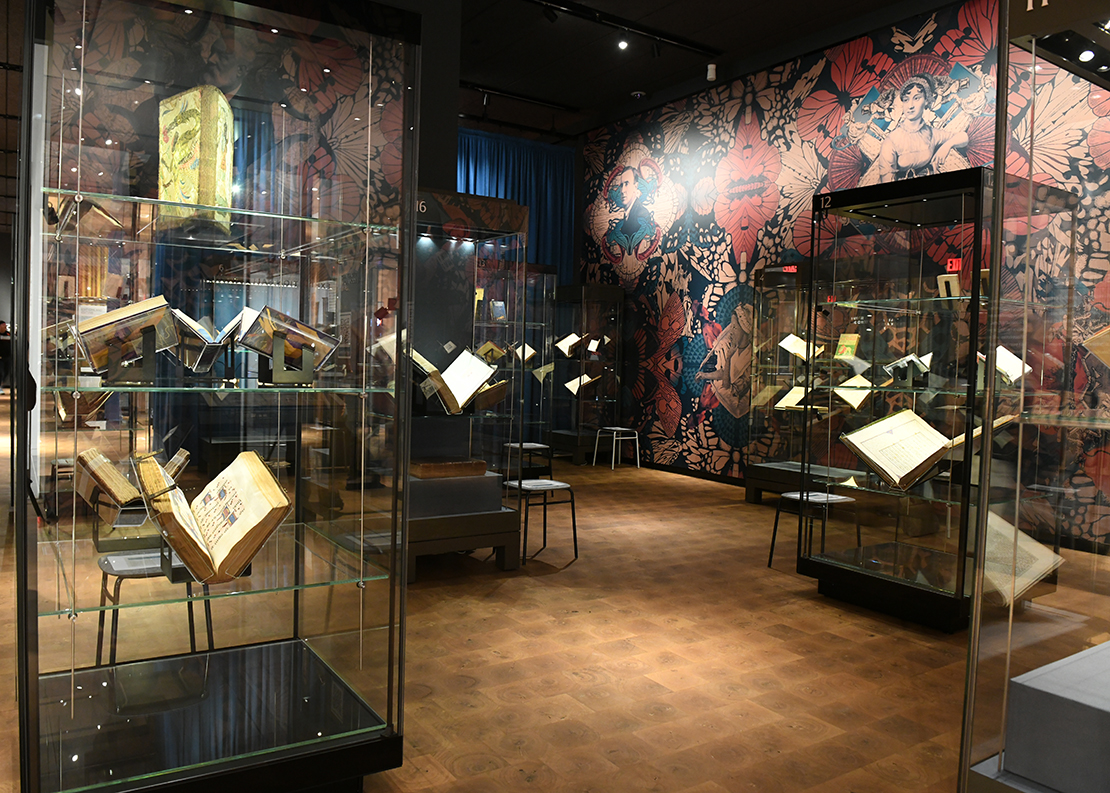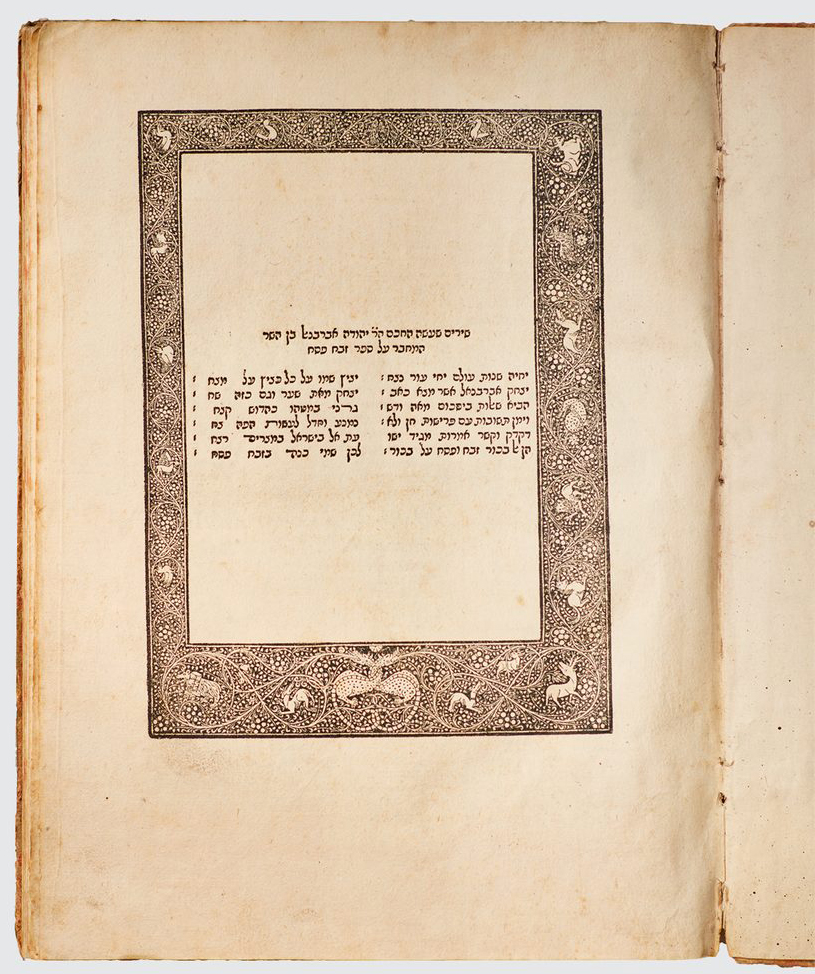D.C.’s Folger Shakespeare Library to open Stuart & Mimi Rose exhibition hall with works from couple’s rare book collection

It’s fitting that the first special exhibition in the Folger Shakespeare Library’s new Stuart and Mimi Rose Rare Book and Manuscript Exhibition Hall is drawn entirely from the Dayton couple’s own exceptional collection.
After a four-year renovation, the Folger reopens Friday, June 21 with the new exhibit, Imprints in Time, featuring 52 of the Roses’ items from across several centuries in the fields of science, religion, philosophy, literature, and history.
Works on exhibit include an Egyptian Book of the Dead from the first century B.C.E.; a first edition of Nicolaus Copernicus’ De revolutionibus (1543), which first put forth the view that the Earth and planets revolve around the sun; an inscribed first edition of Galileo Galilei’s Dialogo, which defended Copernicus’ view of the solar system; a first edition of Winnie-the-Pooh, inscribed by author A. A. Milne to his son; J.R.R. Tolkien’s page proofs with his corrections for The Lord of the Rings; an advance press copy of Martin Luther King Jr.’s I Have a Dream speech; and part of the Apollo 11 flight plan that went to the moon with Neil Armstrong and Buzz Aldrin.
One Jewish item on display from the Roses’ notable collection of rare Jewish books and manuscripts is Don Isaac Abravanel’s Zevach Pesach Haggadah, the first printed commentary on the Passover Haggadah, published in Constantinople in 1505 by the Nahmias family of printers. It’s an early example of printed Hebrew with movable type.

“We wanted to recreate the feeling of being in Stuart and Mimi’s library for this exhibition,” noted Greg Prickman, the Folger’s librarian and director of collections and exhibitions, in a press release announcing the show. Prickman curated Imprints in Time. “Each work showcased offers visitors the opportunity to connect with people and places across many eras of human history.”
Stuart Rose is executive chair of the board and founder of REX American Resources Corporation. He’s also vice chair of the Oil Shale Exploration Company, based in Utah and owned by the country of Estonia. He served on the Folger’s board for 10 years and encouraged the institution to add as much space as it could to display its sizeable collection of early modern European materials. In recognition of his advocacy and financial support for the renovation project, the Folger named the new hall for the couple.
In 2014, the University of Dayton exhibited 40 items from the Rose collection that faculty members selected for display. The Roses have also donated several rare books to UD’s collection, including a 1611 King James Bible.
“I try to buy the greatest copies of the greatest books that were ever printed,” Stuart Rose told The Observer at the time. “I also try to collect good manuscripts. I try to find the very high end. I have a lot of every religion’s manuscripts.”

He said he “caught the rare book bug” more than 30 years ago when he was at a Sotheby’s auction house. “I didn’t really understand what rare books were, but I’ve learned and I’ve been doing it ever since. It’s a great hobby.”
With a network of auction houses and dealers around the world keeping their eyes open for him, Rose said several acquisitions in his collection were hard-fought wins. “You never know if you bought something until it comes in the mail.”
A native of New Orleans, Rose graduated from Emory University in 1976 with a bachelor’s degree in business. In 2013, he funded Emory’s acquisition of rare manuscripts by John Clare, Sylvia Plath, Ted Hughes, Samuel Beckett, W.B. Yeats, Seamus Heaney, and Derek Mahon. Emory renamed its Manuscript, Archives, and Rare Book Library in his honor two years later.
“Stuart maintains that books and manuscripts need to be seen and experienced in order to be enjoyed,” Folger Director Michael Witmore explained in the show announcement press release. “He understood what showcasing the Folger’s collection would mean for public access, and through his generosity, everyone who passes through the Folger’s doors will be able to see a range of items from the Folger’s collection. And in these first months we are open, visitors will also be able to take in the magnificent items in the collection that Stuart and Mimi built.”
Imprints in Time, which includes an illustrated 272-page catalog available for purchase, will be on exhibit at the Folger through Jan. 5. All works on exhibit may also be viewed online.
— Marshall Weiss
To read the complete July 2024 Dayton Jewish Observer, click here.





